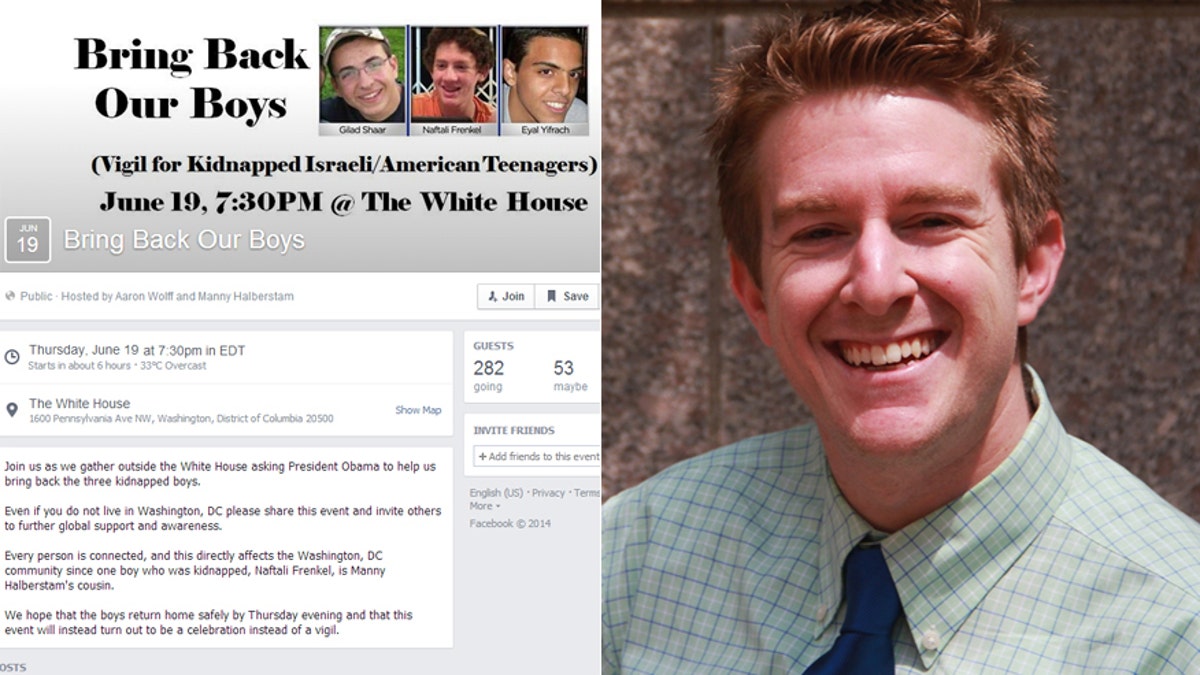
Earlier this week, Israel discovered the bodies of the three Israeli boys who were abducted by terrorists three weeks ago. One of these boys was my cousin, Naftali Frenkel, a sixteen-year-old from the Israeli town of Nof Ayalon.
Ever since these boys were kidnapped, Naftali’s name and face have been posted all over the news and social media. As someone who knew Naftali personally, I see his name and his face and I see an entire personality, a whole inner world unto himself that is now gone forever.
[pullquote]
Naftali was a special kid who almost always wore a smile on his face. He had a particular passion for music. He was a good brother to his younger siblings and a respectful son to his loving parents.
The future was so rich with potential for a boy of such moral character. As such, it is so sad to see his life cut short like this, in so cruel and senseless a fashion. With Naftali’s death, the world has suffered an immeasurable loss.
The discovery of Naftali’s body, along with those of the two other teens, Eyal and Gilad, marked the tragic end of an eighteen day global campaign that aimed to raise public awareness about the kidnapping and to petition world leaders to pressure the abductors into releasing the children.
Using the hashtag “#Bring Back Our Boys” to promote this cause, communities in Israel and around the world rallied in solidarity with the families of these boys.
As one of Naftali's family members, living in the U.S., I felt compelled to invest myself in this critical campaign and to partake in vigils, solidarity rallies and fundraising events in both Washington and New York.
The hashtag “#Bring Back Our Boys” was modeled after the hashtag of the “#Bring Back Our Girls” campaign, which emerged in response to the recent despicable kidnapping of hundreds of Nigerian schoolgirls by an Islamic terrorist group just two months prior to the kidnapping and murder of the Israeli boys.
In the weeks that followed the abduction of the Nigerian girls in mid-April, there were gatherings that took place in cities across the globe to send a clear message that all efforts must be taken to bring these girls home. But by late June, there were still over 200 girls missing.
The links between the “#Bring Back Our Boys” campaign and the “#Bring Back Our Girls” campaign go beyond their similar ‘hashtags.’ Both of these campaigns responded to appalling abductions of innocent children that struck the moral consciousness of the free world. Both of these campaigns drew widespread global support and flooded social media. And, tragically, so far, at least one these campaigns had a sad ending: our boys and our girls never came home. Our campaign has ended in buckets and buckets of tears.
The fact that these children have not been able to reunite with their families naturally calls into question the success of the two respective “#Bring Back Our Children” campaigns.
As we accept the cruel reality that our boys and our girls never made it home, we might be inclined to think that the time and energy we poured into these campaigns were in vain.
As the news surfaced earlier this week that the Israeli boys had been shot not long after they were abducted, I, along with other participants in the #Bring Back Our Boys campaign, were inclined to conclude that, in the end, all our efforts did not make a difference.
Yet, concluding that our efforts were in vain is the furthest thing from the truth. In reality, our collective efforts in the ‘#Bring Back Our Children” campaigns achieved an important result: we managed to make people of different walks of life feel so close to one another.
In doing so, the campaigns strengthened our sense of community, tightened our bonds to those with whom we have little in common and deepened the wells of compassion that we feel for strangers who are experiencing suffering.
In this sense, we, as a global community, have taken significant strides toward the type of ideal future where a feeling of common humanity and a spirit of interpersonal empathy will steer the hearts of people away from the forces of violence and terrorism; the type of future where the kinds of senseless acts that cost my cousin his life occur less frequently.
My personal experience coping with the kidnapping and murder of my cousin offers practical proof of this point.
Since the kidnapping, I have been amazed by the number of strangers who, upon learning that Naftali was my cousin, unflinchingly extended their arms and gave me the warmest of hugs.
I have received countless phone calls and messages from people I have never met expressing their deepest sympathies for what my extended family has experienced and sending their sincerest condolences for the loss suffered. Those who reached out to me represented a broad array of religious faiths and, reassuringly, some were even Palestinian Muslims.
The waves of love and support flowing in the direction of the extended families of Naftali, Eyal and Gilad have showed me that while Naftali was a brother by blood to only some of us, each of the three boys was a brother by common humanity to all of us. In this sense, in a paradoxical way, this tragic episode has only strengthened my faith in mankind.
